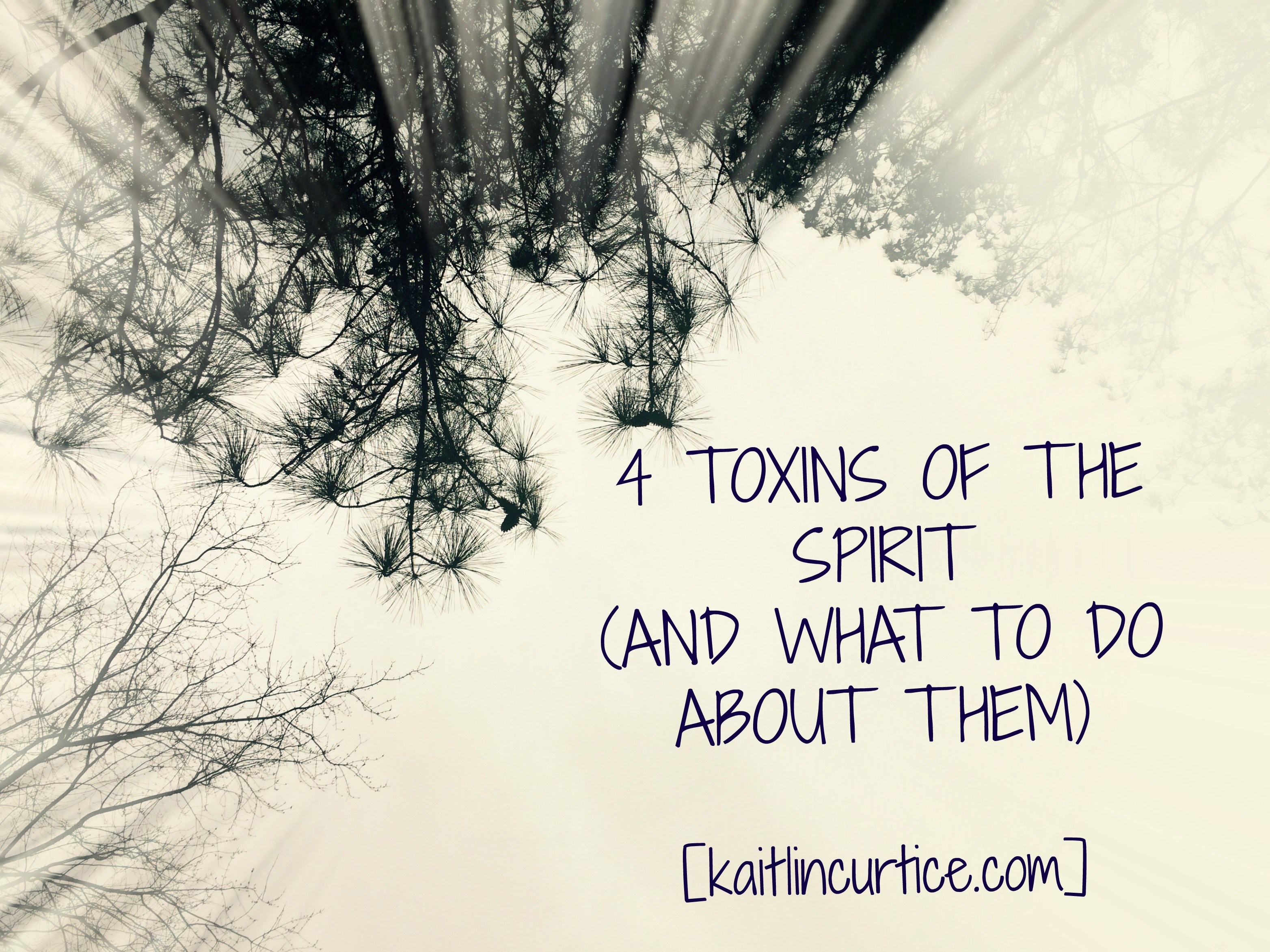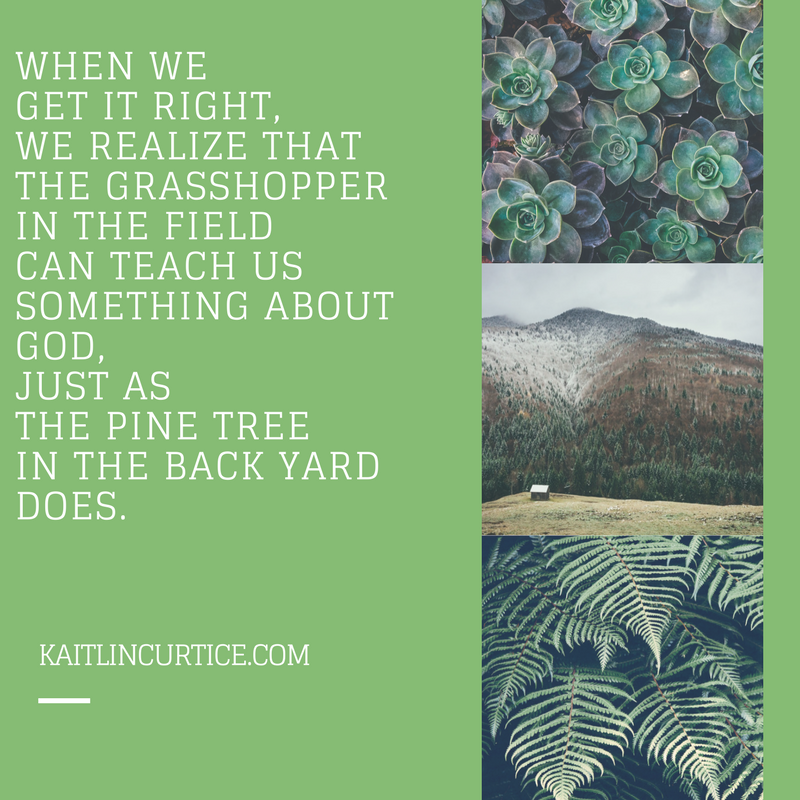
Hemlock and aconite, also known by many as Wolfs bane, are just two of multiple poisons that have been known to exist in the natural world. These two toxins, among others, are unique in that they work slowly in the body, causing slow paralysis and shut down of the systems before death occurs.
Just as it is with the body, there are toxins of the spirit that we injest every day without recognizing them. They are the slow and steady poisons that work their way through us, eventually causing harm. When I was young, I sat in a pew every Sunday morning and evening and heard stories about the dreadful things that would become of someone who drank or smoked or had sex too young and out of wedlock. Mixed in were the warnings of flirting or spending time with the unchurched, fears of being lost to a dark and sinful world.
But now I believe, along with people like Richard Rohr and Barbara Brown Taylor, that this place we inhabit is a benevolently beautiful one, in which creation began not as a horrible mistake but a chance for something cosmically good to take place.
Some of the things I was warned of as a child have the ability destroy the body, but this series is about four things that I’ve found destroy the soul when they slowly work their way into our lives, things we may not even be aware of— things we may be blatantly ignoring as they grow inside of us. These are things I see every day, especially if I scan my Facebook feeds for long enough.
The first toxin is that of racism and othering, which have come to the surface in social media, but have always been a constant trouble to the soul. We see story after story– an unarmed black man shot by a white police officer; a Muslim woman harassed in the street; three young black men torturing a white man with disabilities; a woman threatening a Latina worker in a grocery store, all flashing across our Facebook and Twitter feeds in the course of a week. This is without mentioning atrocities that happen all over the world, like the killing of civilians in Aleppo.
If we are to admit it, these are not just products of a society or a system, but go straight to the heart of who we are, killing us slowly every day that they work their way through us.
Brian McLaren says in his new book, The Great Spiritual Migration, that “the word ‘we,’ as it turns out, can be pretty dangerous, because it can otherize and dehumanize those who aren’t like us.”
If we are honest about our own history’s past, about humanity’s past, we must be honest about the long-standing legacy of racism and prejudice that have maimed and broken so many throughout the centuries.
So what are we to do about it? And who do we answer to when we find these toxins inside of ourselves?
Is fasting from Facebook feeds and untruthful news enough to root out these toxins?
Why are these questions coming up again, and what is the church (and every other religious or spiritual community) to do about it?
After a series of shootings of African American men in the United States, a group of people met at a picnic table under the tall oak trees in my church’s front yard—all of us from different backgrounds, of differing races and beliefs, gathered for an awkward, terrifying, and necessary meeting to seek peace.
The white people under that tree admitted that they didn’t know what to do, apologized for what had been done, apologized for the fact that they could never understand.
But the most powerful statement was the one that said, “I have this racism. I feel afraid, and I know it’s been inside of me for a long time, and I don’t even understand it.” Reaching out with this realization was the first step taken towards true healing, towards a relationship of soul-to-soul responsibility and honesty about what’s been done and left undone. This must be the first step toward rooting out the toxins of racism and othering– a terrifying and humbling acknowledgement that it exists, and we must follow that with a long and steady lament.
Mark Charles speaks on this lament, especially within the walls of the church. If we have played a part in the rise of racism in this world, it is necessary we lament and begin again, because this is where the power of these toxins take root and grow, as they often have in the United States and across the world.
Perhaps having faith in something helps protect us from racist othering. Perhaps having faith in Jesus, who sought out those that were othered, will actually create in us the opposite effect of what we’ve been giving ourselves over to — an effect in which we stop the poisons of racism, prejudice, and othering from rooting themselves in us, and we actually begin to find a voice to fight them openly, with persistent compassion and an undying, protestful spirit.
We look to the healers of our time and the times before us. We look to the voices and the spirits that give fresh life to others through their kind and steadfast compassion.
The way of a healer is not just to root out the toxin, but to tell us how to avoid being poisoned again- and so, as our leader-healer, Jesus tells us stories. He relates to our bodies in his own body, our souls in his own soul. He draws us close to the earth and tells us to care for it, to care for each other. He tells us to take logs out of our eyes and to shake hands instead of slapping faces.
So we voice our concerns, not just for the people of our own race or kind, but for all humanity. We voice our concerns in protest for those that are othered today, and you do not have to look far to find them. We face quite a challenge, not only in our world, but right here with the neighbor next door, with the other political party or the lower class or the other ethnic mix, with the religious belief that differs drastically from our own.
Jesus knew that rooting toxins like prejudice out of ourselves does not mean that we lose ourselves, but it means that we gain the ability to be empathetic again, to honor the fact that our journey is not the only one in the world, and true justice is setting right every wrong on the terms of grace and reconciliation. And we meet at the table, under the oak tree, in the church yard, in our own living rooms. We meet wherever we can and we tell the really, really difficult truth.
If we are to root out these toxins, we take the charge seriously, and then we pass on those same stories and hopes to the generations after us, to the world outside of us. We too, can be healthy and whole toward our brothers and sisters, toward creation, toward God, toward ourselves. We can learn daily what it means to stop racism and othering, and replace them with care and compassion for all others.
But before we begin, we must admit that they’re there in the first place, which may be the most difficult part of all– but most necessary.















